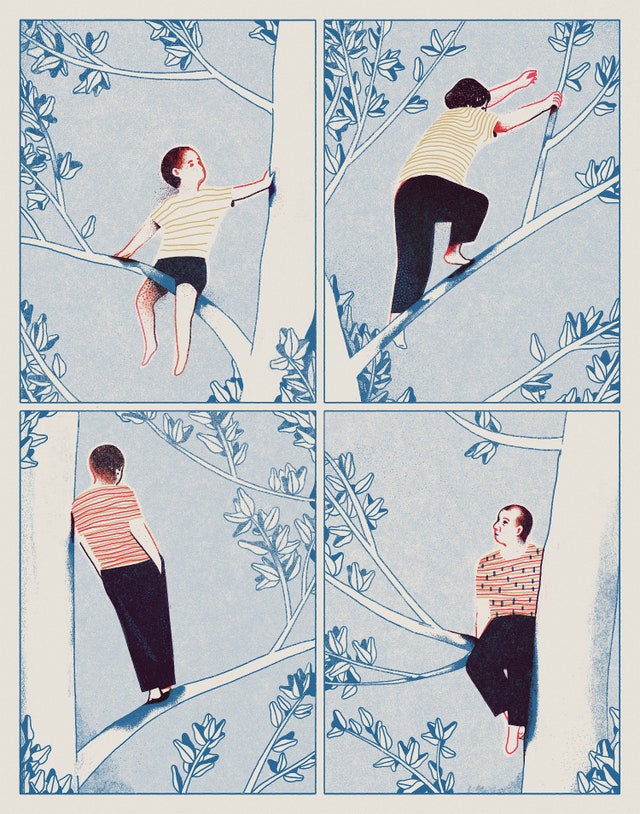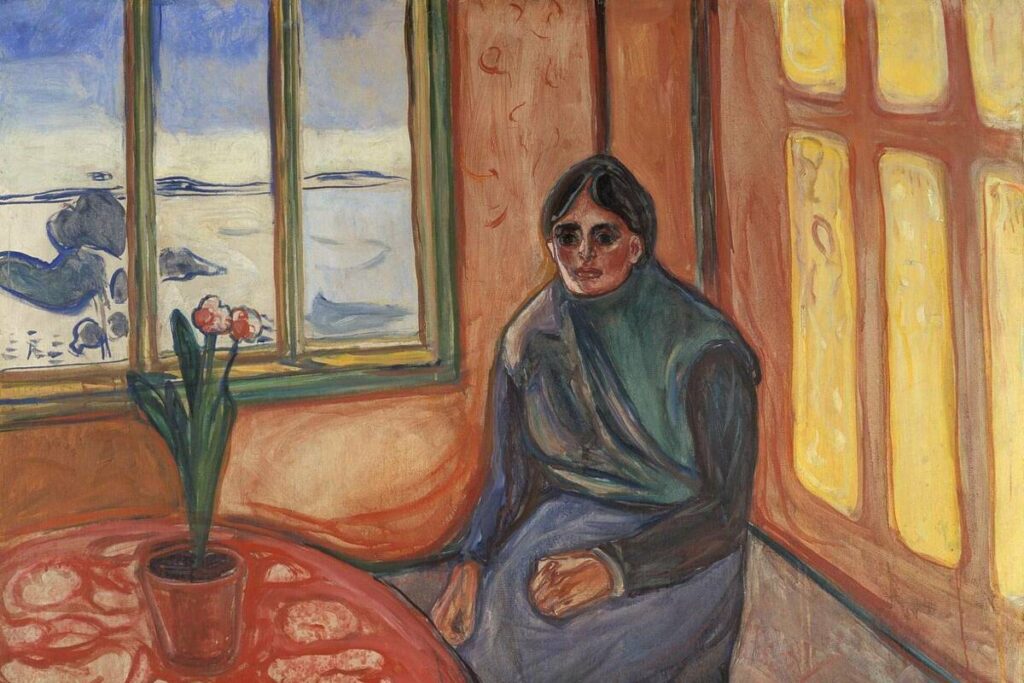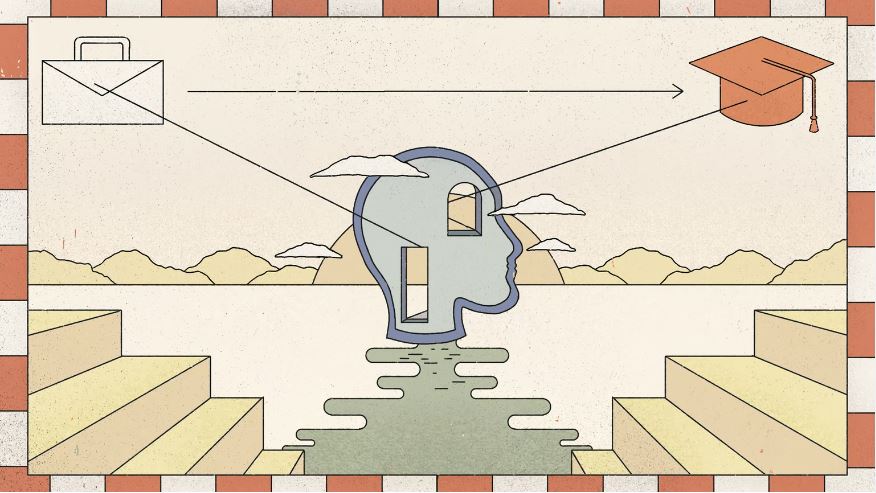“Becoming You,” by Joshua Rothman in The New Yorker

What I recall from when I was four are the red-painted nails of a mean babysitter; the brushed-silver stereo in my parents’ apartment; a particular orange-carpeted hallway; some houseplants in the sun; and a glimpse of my father’s face, perhaps smuggled into memory from a photograph. These disconnected images don’t knit together into a picture of a life. They also fail to illuminate any inner reality. I have no memories of my own feelings, thoughts, or personality; I’m told that I was a cheerful, talkative child given to long dinner-table speeches, but don’t remember being so. My son, who is happy and voluble, is so much fun to be around that I sometimes mourn, on his behalf, his future inability to remember himself.
“The Lifetime Reading Plan,” by Nathan Payne in The Lamp

Despite his estrangement from academia, Fadiman thought that his variegated career had allowed him to act as a sort of “hemi-demi-semi-quasi-professor,” or a “pitchman-professor, selling ideas, often other men’s, at marked-down figures.” Underneath the layers of irony and self-deprecation, Fadiman was proud of this role, and he believed it to be one that was absolutely necessary. He was concerned that the gap between the intellectual class and the general public was widening, and that American institutions were failing to produce a “large class of fairly well-educated citizens.” The intellectual class was either unable or unwilling to speak to mainstream American society, and instead developed “its own private closed language” and “its own isolated identity.” To close this gap, and to communicate great art and great ideas to the forgotten general public, was the popularizer’s essential, though in some quarters thankless, task.
“Faith, Hope, and Carnage: The Terrible Beauty of Grief,” by Nick Cave in Church Life Journal

But I also think it is important to say that these feelings I am describing, this point of absolute annihilation, is not exceptional. In fact it is ordinary, in that it happens to all of us at some time or another. We are all, at some point in our lives, obliterated by loss. If you haven’t been by now, you will be in time—that’s for sure. And, of course, if you have been fortunate enough to have been truly loved, in this world, you will also cause extraordinary pain to others when you leave it. That’s the covenant of life and death, and the terrible beauty of grief.
“The New Old Age,” by David Brooks in The Atlantic

Since the dawn of the modern age, people have been complaining about the hollowness of the rat race, but nobody ever does anything about it. If these post-professional programs can help older people figure out what a fulfilling life looks like when work and career are no longer in the center, then maybe they’ll have some lessons for the rest of us.



